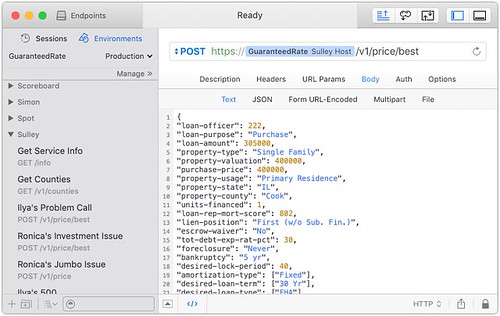
Today I was looking for a solution to a problem I saw in the syntax highlighting of Sublime Text 3's Markdown files when there were Clojure code blocks in the file. All the other coding blocks I had been using were highlighting with a different background, and the text in the block was highlighted according to that language's rules. But not so with Clojure.
So I asked on the Sublime Text Forums about the issue and to my amazement, I got a response! The response was clear about what I needed to do, and while there was a slight issue with the installation of a package, I solved that with a git clone in the directory, and I was in business.
At the time, I also submitted an issue with the Sublime Text GitHub group, and let them know I was having a problem. Very much like the issue on the Forum post. When I got an answer on the Forums, I updated the GitHub issue, and included the answer I got from the Forum guy. He didn't sound like he was tied into the GitHub group.
Mistake #1.
I then got a response on the Issue kinda poking me to make a PR because I have an answer that worked for me. And me, trying to be helpful to the folks that helped me, wanted to respond. It was just the tone of the request that was a little off. I should have listened to that voice.
Mistake #2.
So I made the Pull Request on the project and put in the comments, etc. and submitted it. At this point, I really want to thank GitHub for making a tool that has the most amazing workflow I've ever used. The ability to fork, and make a PR on a GitHub repo, and have the fork linked to the PR so that updating one updates the other is just amazing. I know it's not impossible - but it is very nice, and that's so nice to see.
The PR, as you can see, is really a very specific YAML file section, and there were, of course, no comments in it. I had no idea that the elements have changed, so when the reviewer chastised me for not looking at the rest of the file, and detecting the changes, I got a little prickly. But I said to myself "Take it easy... this is a simple mistake", and I apologized on the PR, and made the changes.
At the same time, the guy who helped me on the Forum chimed in and threw me under the bus - saying "Yeah, he didn't do the right thing - I gave him something that worked on the release version, but not master". I love it when people do this. It's such a comforting thought to be in an industry of people with such high integrity.
So that was fixed, and I thought "OK... enough of this, moving on..."
Mistake #3.
I then got a note saying that I hadn't read the rules of PR submissions, and that I needed to write rendering tests for this new code block. And believe me, these are not easy, and they are not trivial, and all this for something I should have just said "Sorry, I'm too busy, you can do the PR on your own."
But I read up on the tests. How to write them - and they are stupid. But I did it. And then I wrote the rendering tests and added those to the PR. And they all passed. Which was nice. So now I'm thinking "OK... this is finally over." But when will I learn?
Then a maintainer comes along and says this will have to be put on hold because they don't understand something about what's happening in the code, and that is causing an issue that is unrelated to the PR, but the PR would make things worse, or something.
So... I try to be a nice guy after someone has been nice to me... you know... passing it on... and for that, I get to deal with the Slashdot Kids living in their parent's basement and holding some power trip over poor saps like me that try to help folks out.
But I have a fix. I know what to do for subsequent releases, and I'll never do this again with these folks. Lesson learned.









